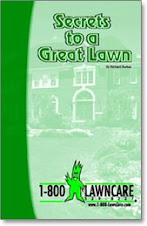Welcome to Lawn Talk.
Designed to answer any questions you have regarding fertilization, weed control and ornamental turf diseases. Be sure and scroll to the bottom of the page for helpful articles and past entries.
Monday, May 19, 2014
The Lingering Effects of Winter
As a rule in this region, turf grasses transition from dormancy around the middle of April to May 1st. In years past, turf grasses have transitioned as late as may 15th and as early as March 30th. The transitioning of turf grasses in this region has in years past been very easy to predict as weather patterns over the years have been consistent, with slim chances of late freezes, although it does and has happened in our recent history, But, this year has been nothing short of chaos .
In March we had temperatures that reached 82 degrees at their highest, and twelve at their lowest. We had the last day of freezing temperatures around the middle of April, the day before it was 76 degrees the next day it was 28 degrees. These type temperature swings which are not typical, can wreak havoc on transitioning grass. The slow transition period can develop into winter kill or burn, areas that do not come back from the previous year, never to green up again. St. Augustine is very susceptible to a late freeze and can often never transition fully, leaving large dead areas for the homeowner to have to re-sod.
Winter kill or spring dead spot, can leave large areas in Bermuda grass that look like someone has killed the grass with something, when in reality, it's a late frost that's the culprit. Jack Frost can cause cancerous areas in transitioning grass, and this year we had many late freezes, just as the yard starts to turn green, the chill is on, and dead spots are the result. So how do we fix the problem? We can't. Only time will help heal those damaged areas as grass starts to spread in dead areas. A fungicide can be sprayed to eliminate the fungus "Spring Dead Spot" but the damage is done. Your only hope is to spray a fungicide to prevent a reoccurrence of the year before, effectively stopping more damage the next year. Re-sodding is an answer for dead areas, those that are obviously damaged from "Winter Kill" or late freeze, or wait for them to fill back in as the grass around that area grows.
If you have any questions or if you think you have "Winter Kill" "Spring Dead Spot" and need someone to take a look, call us Lawn Tech, @ 972-346-2696, we can work out a time to come visit your lawn and see if the areas of damage you have are indeed from a late freeze or something else is going on, like "Brown Patch" or some other disease.
Subscribe to:
Post Comments (Atom)








No comments:
Post a Comment